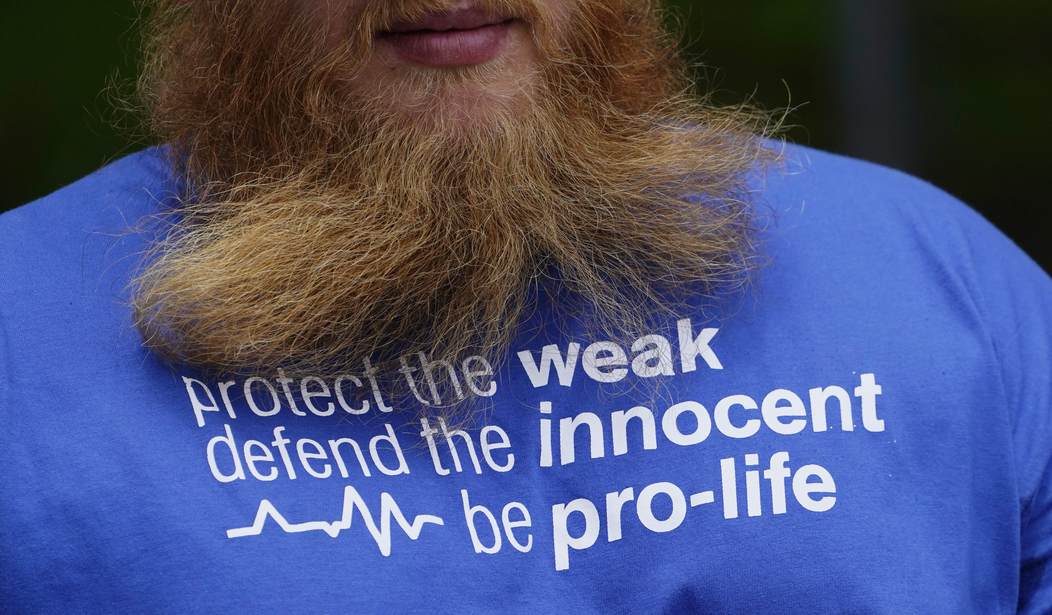Two experts wrote about making an ethical case for abortion earlier this year. I disagreed, in a piece published by Townhall.com. Then, they responded.
In April, Salon issued a piece with the headline reading, “Why the case against abortion is weak, ethically speaking.” Nathan Nobis, an associate professor of philosophy at Morehouse College, and Jonathan Dudley, a postdoctoral fellow in molecular genetic pathology at Johns Hopkins Hospital, argued that there’s a moral and ethical case to be made for abortion.
“So, is abortion murder?” they asked. “Not unless other widely-accepted medical procedures that end human life are also wrong. But they aren't, and neither is abortion.”
As an example, they pointed to organ donors.
“First, in every U.S. state and most countries, if a person elects to be an organ donor, their organs can be removed for transplant when that person suffers complete brain death—even if their body is still alive,” they argued. “Organ harvesting involves cutting living human beings open and their organs being removed one-by-one until, at last, the heart is detached and the human being dies, having been directly killed by the procedure.”
In my response, I found some troubling differences in their argument.
“Brain death is irreversible, with no chance of recovery. An unborn baby is just beginning his or her life – and, more often than not, is perfectly healthy,” I wrote. Nobis and Dudley “also assumed that their readers believe a person who is brain dead is still ‘alive’ and can be ‘killed’ – something that’s highly debatable, perhaps on both sides of the abortion debate.”
They resurrected their organ donor example in their response to my piece. If, as I previously wrote, abortion intentionally destroys the life of an innocent human being, then “widely accepted organ donation procedures are also wrong,” they began.
Recommended
That’s because “these procedures both share the relevant similarity of intentionally killing an innocent human being,” they argued. And, they added, “According to Ms. Yoder, and most pro-life organizations, that is what makes abortion wrong.”
While Nobis and Dudley argued that the “sole purpose of abortion is not to kill an innocent human being,” they recognized that “Killing a human being may be the sole means to that end” as it is also “the sole means to the end of obtaining vital organs for transplant from permanently brain dead but still living human beings.”
Here, they repeated their assumption: That someone who is brain dead is not already dead. My opinion aside here, someone who is brain dead is commonly considered dead – legally and medically – because there is no chance of recovery.
This is the main difference, in their own argument, that they should address: An unborn human life is not considered “dead” with no chance of recovery or revival.
Nobis and Dudley say that they “provide an alternative ethical framework that makes sense of the widespread belief that such organ donation procedures are not wrong” in that “they affect human beings without brains that allow for consciousness or feeling or awareness.”
But why place someone’s moral value on his or her brain – and do they see how this could be an arbitrary line? How might someone with cognitive disabilities fit into the equation?
And so, to me, these experts raise more questions than they answer.
“Rooting moral value in the possession of a brain capable of consciousness means that moral value begins when such a brain begins to exist (in the second half of pregnancy) and ends when such a brain ceases to exist,” they argue. “‘Brain death’ is a well-known and morally significant concept, but analogous concepts for the beginning of life—‘brain birth’ or being ‘brain alive’—are not well known, but should be.”
My questions continue: Can Nobis and Dudley acknowledge that this might be an unreliable method when we know so little about the brain – even now? When is someone brain dead and when is someone “brain alive”? What is consciencessness and when does it begin? They write that the brain begins to exist “in the second half of pregnancy” – but what does this mean, and can we pinpoint the day, the second? Can they map the moment when one baby can be aborted, and when he or she can’t?
In their original piece, Nobis and Dudley warn that “In recent years, over 250 abortion-restrictive laws have been proposed across 45 states.” But perhaps this is one area where we can find some kind of agreement. If they say it’s not right to destroy a human person whose moral value begins “in the second half of pregnancy,” then, maybe, they can support some abortion restrictions.
Even in disagreement, Nobis and Dudley hoped that my piece encouraged “readers to learn more about these complex issues and work harder to really understand the claims and arguments they might disagree with.”
They thanked me and I thank them, too, for reading my piece and for their patience in awaiting my response.

























Join the conversation as a VIP Member